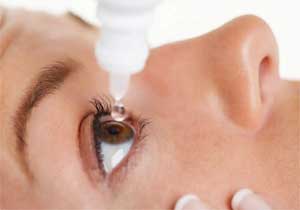- Home
- Editorial
- News
- Practice Guidelines
- Anesthesiology Guidelines
- Cancer Guidelines
- Cardiac Sciences Guidelines
- Critical Care Guidelines
- Dentistry Guidelines
- Dermatology Guidelines
- Diabetes and Endo Guidelines
- Diagnostics Guidelines
- ENT Guidelines
- Featured Practice Guidelines
- Gastroenterology Guidelines
- Geriatrics Guidelines
- Medicine Guidelines
- Nephrology Guidelines
- Neurosciences Guidelines
- Obs and Gynae Guidelines
- Ophthalmology Guidelines
- Orthopaedics Guidelines
- Paediatrics Guidelines
- Psychiatry Guidelines
- Pulmonology Guidelines
- Radiology Guidelines
- Surgery Guidelines
- Urology Guidelines
Vitamin D enhances topical treatment of dry eye disease

Korea: Vitamin D may enhance the efficacy of topical dry eye treatment and can possibly be used as potential adjuvant therapy for patients with dry eye disease, according to a recently published study.
The study, published in the journal Cornea found that vitamin D supplementation enhanced the efficacy of topical CLAT and HU. Topical carbomer-based lipid-containing artificial tears (CLAT) and hyaluronate (HU) are used for the treatment of dry eye disease (DED).
Dry eye disease is characterized by inflammation of the cornea, the transparent outer layer of the eye and dysregulation of tears production. In severe dry eye disease, which often accompanies diseases such as Sjogren’s syndrome and ocular graft-versus-host disease, the inflammation in the corneal tissue can become extreme enough to cause disabling eye pain and sensitivity to light.
Jin Sun Hwang, Department of Ophthalmology, Hallym University College of Medicine, Seoul, Korea, and colleagues examined the efficacy of topical CLAT and hyaluronate HU in patients with dry eye disease based on serum 25-hydroxyvitamin D (25HD) levels and cholecalciferol (vitamin D) supplementation.
The researchers included a total of 116 patients with dry eye disease. They were divided into two groups vitamin D deficiency (VDD) group and the non-VDD group according to their serum 25HD levels. All patients, regardless of their vitamin D levels, were offered the choice of no supplementation, oral supplementation, or intramuscular supplementation.
Ocular Surface Disease Index (OSDI) score, visual analog pain scale score (VAPS), lid hyperemia, tear breakup time (TBUT), corneal fluorescein staining score, and Schirmer test were evaluated at baseline and 2 weeks following treatment.
Also Read: Preoperative dry eye treatment with Xiidra improved outcomes of cataract surgery
Key findings of the study include:
- The OSDI and visual analog pain scale scores of both VDD and non-VDD groups decreased after application of topical CLAT and HU compared with baseline values.
- TBUT, corneal fluorescein staining score, and lid hyperemia in the VDD group remained unaffected by topical CLAT and HU, whereas those in the non-VDD group were improved (3.2 ± 1.7 vs. 4.1 ± 2.2, 0.5 ± 0.7 vs. 0.4 ± 0.6, and 2.2 ± 0.8 vs. 1.9 ± 0.7 in the non-VDD group).
- OSDI score, TBUT, and lid margin hyperemia were improved in the intramuscular group after cholecalciferol supplementation compared with pretreatment (33.2 ± 23.2 vs. 28.5 ± 21.9, 3.5 ± 1.9 vs. 6.0 ± 2.5, and 2.2 ± 0.7 vs. 1.2 ± 0.8).
Also Read: Eye drops with biosynthetic enzyme promising treatment for dry eye disease
"Our findings suggest that vitamin D supplements increase the efficacy of lubricant eye preparations and help patients suffering from dry eye disease. Vitamin D supplementation by the intramuscular route may enhance the efficacy of topical dry eye treatments, and can possibly be used as potential adjuvant therapy for patients with dry eye disease," concluded the authors.
To read the complete study log on to doi: 10.1097/ICO.0000000000001822

Disclaimer: This site is primarily intended for healthcare professionals. Any content/information on this website does not replace the advice of medical and/or health professionals and should not be construed as medical/diagnostic advice/endorsement or prescription. Use of this site is subject to our terms of use, privacy policy, advertisement policy. © 2020 Minerva Medical Treatment Pvt Ltd